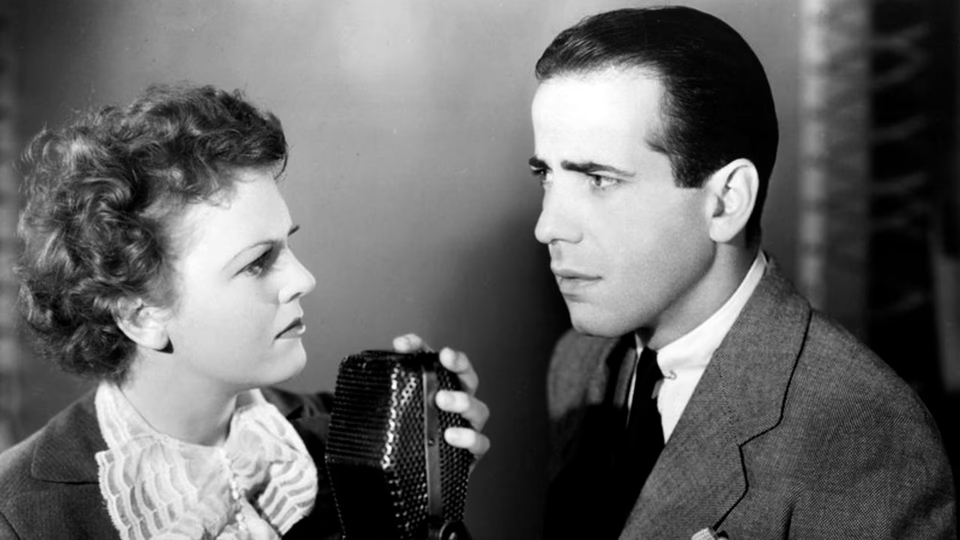Two Against the World

A remake of Five Star Final. Humphrey Bogart plays the manager of a struggling radio station whose boss pushes him to air a “Where are they now?” exposé on an old murder case “in the public interest.”
Bogart knows it’s sleaze, but goes along to save his job. His performance conveys a good man hiding behind a cynical veneer—a persona that would define some of his greatest roles.
This is not one of said roles. The film opens with assorted monologue exposition dumps. Even Bogart can’t escape the tin-eared script, admitting “Our who wrote what opera contest was a flop,” when confronted with the station’s flagging ratings.
The script’s lone moment of inspiration comes when Bogart asks his secretary—who often doubles as his conscience—what she thinks of the idea to revive the murder story. “I think you can always get people interested in the crucifixion of a woman,” she replies.
The station recruits a smarmy reporter, Dr. Leavenworth, played by Harry Hayden, who reminded me of Edward Van Sloan’s Van Helsing in Dracula. Hayden improves on Boris Karloff’s performance in the original by playing the character like a modern self-righteous televangelist, secure his sanctimonious ends justify his means.
But these potential improvements can’t overcome the overwrought melodrama. Like the original, the station’s re-airing of the murder sees a young couple pulled apart when his parents realize her mother is the subject of the radio series. None of these characters pack the slightest amount of charisma. The woman and her husband display no sense of agency, bemoaning “If only someone would help us.”
Compounding matters, the sixty-four minute length necessitates a compressed timeline which makes the rapid escalation from broken engagement to tragedy border on satirical.
Through it all, the script retains its tin-eared love of exposition. When the family turns to their priest for help, we see a scene inside the “Association of Broadcasters.” This scene seems to exist to pacify the radio industry, showing the “good” broadcasters condeming the “bad” ones and thus make it clear the film isn’t condemning all radio. And yet the script still has the priest finish his monologue with “That, gentlemen, is my personal appeal to you, who represent all the big broadcast companies.”